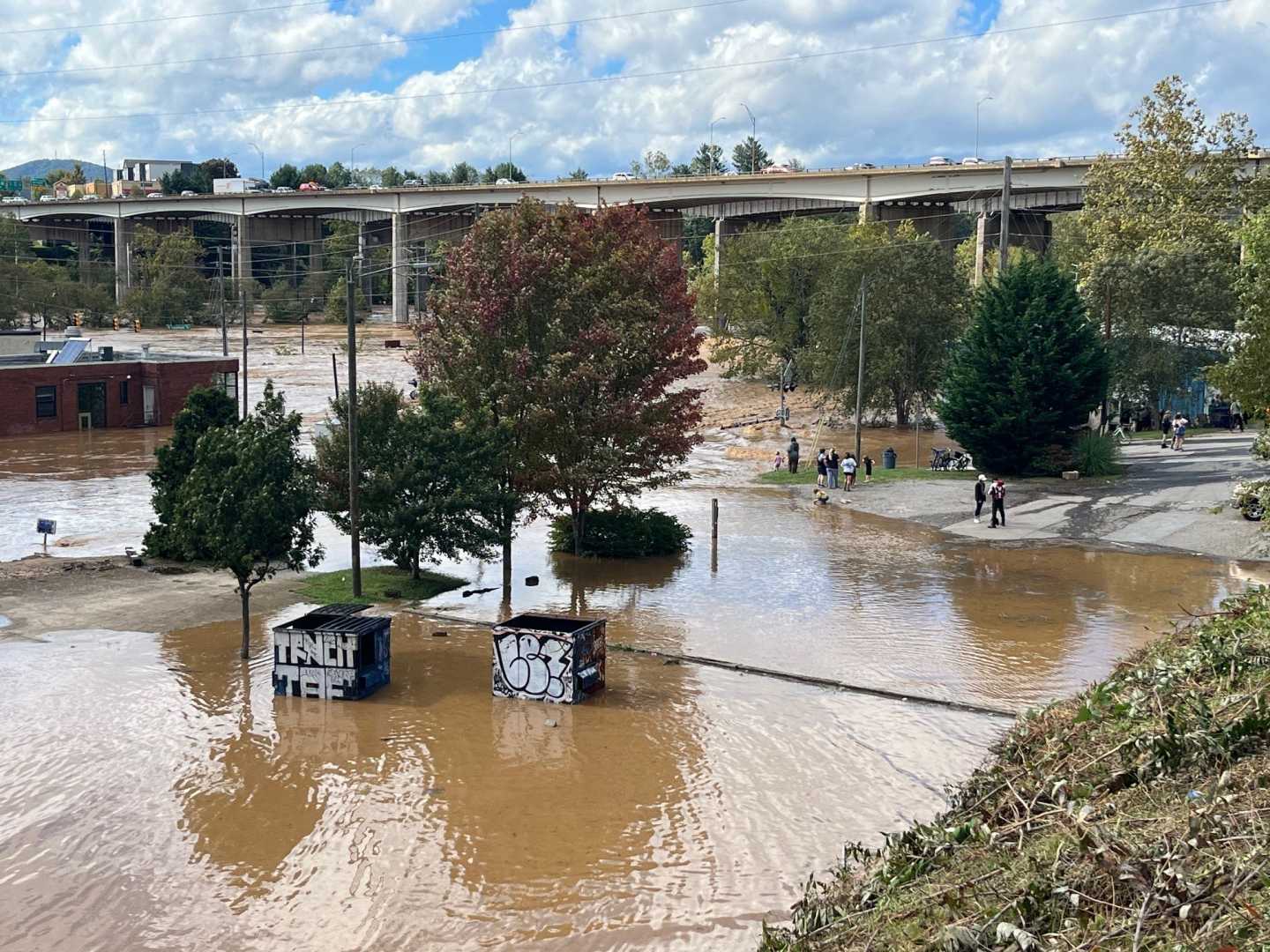News
Devastating Flooding in Western North Carolina Amidst Hurricane Helene

A historic village in western North Carolina is facing severe flooding as Hurricane Helene wreaks havoc across the region. Asheville‘s Biltmore Village, renowned for its unique construction history, is heavily inundated with floodwaters, as tree branches, logs, and even a dumpster floated across its streets.
Residents like Tammy Borgesen are experiencing power outages and are struggling to communicate with family and friends. Borgesen, who was seen outside a hotel downtown – one of the few areas with Wi-Fi access – expressed her concern, saying, “We’ve been trying to get an email or a text out to just let everybody know we’re ok,” while adding that she had water but no power at home. The water levels reached several feet, submerging some areas almost up to the street signs.
The destruction has left more than 200 people in need of rescue from the rising floodwaters, according to a statement from North Carolina Governor Roy Cooper‘s office. Additionally, over 400 roads have been closed, obstructing both travel and rescue efforts, while Asheville bears the brunt of the storm’s impact. A local at the scene remarked, “We knew the flooding was coming but we didn’t know it was going to be this catastrophic.”
The aftermath of Hurricane Helene, which has transitioned to a post-tropical cyclone, has resulted in widespread devastation across the southeastern United States. President Joe Biden has responded by approving emergency declarations for several affected southern states, including North Carolina and its neighboring states, Georgia, Florida, Alabama, Tennessee, and South Carolina.
In total, at least 53 fatalities have been reported as a result of the storm, while approximately 3 million customers remain without power across various states including South Carolina, North Carolina, Georgia, Florida, and Virginia, as per Poweroutage.us. Georgia was initially struck late Thursday when the hurricane made landfall as a Category 4 storm.
Governor Cooper has expressed gratitude towards first responders, “This is a historic and catastrophic storm for Western North Carolina, and I’m grateful to first responders working right now to save lives and evacuate residents.” He stated initiatives are underway to restore power and communication, further emphasizing the effort to bring in supplies by air to the afflicted regions.
The situation remains dire with continuous search and rescue operations across Western North Carolina, supported by teams from 19 states and three federal entities. Rainfall reaching up to 29 inches in some areas has exacerbated flooding, with high winds also toppling trees and power lines. Consequently, over 700,000 individuals are currently experiencing power outages. Sixteen shelters have accommodated roughly 1,100 residents overnight.
State Emergency Management Director Will Ray acknowledged the extensive effort from various teams to aid North Carolinians severely affected by Helene. Ray urged residents to remain cautious, “Please remain aware of hazards and follow directions from local officials to protect life and safety.”
In addition to the flooding, landslides have been reported, leading to significant disruptions on major routes such as Interstates 26 and 40. Authorities continue to caution against travel within the impacted regions, asserting that most roads should be considered closed. Emergency services have been inundated with calls for assistance, emphasizing the importance of using 911 for emergencies only.












